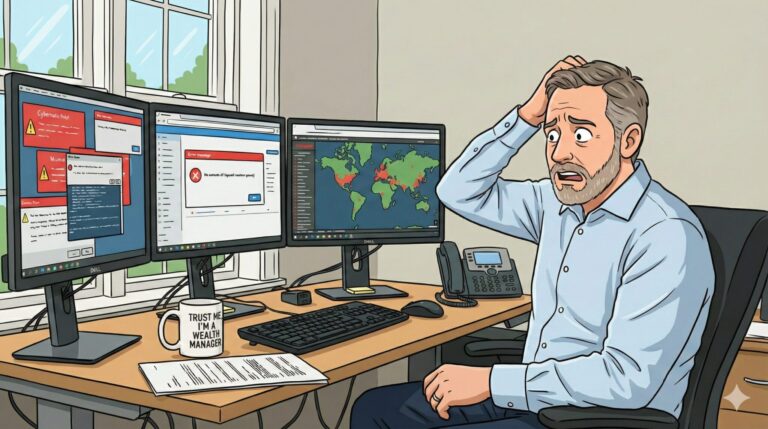The only thing more essential than online privacy protection, in general, are the laws, rules, and regulations designed to protect the most vulnerable among us: our children. Here’s what you need to know.

Wow! Did you know that as of June 20, 2017, there were approximately 3.88 billion Internet users worldwide? To put this into perspective, that’s about 51.7% of the total population of planet Earth!
However, most discussions regarding the ubiquitous use of digital resources fail to place proper emphasis on the people who are actually being affected the most: our children. Make no mistake, primary age children are more connected, more mobile and more social than their parents or grandparents ever were thanks to the wonders of the World Wide Web. This poses a number of interesting (and potentially dangerous) implications in terms of online privacy that are essential for us to explore.
Children and the Internet: Facts and Figures
According to a study conducted by the experts at Kids Matter:
- Nearly 95% of children between the ages of eight and 11 years of age have had access to the Internet at least once in the last four weeks.
- Those who fall into this age range are also much more likely to use more multiple Internet-enabled devices than their “grown up” counterparts.
- The average 10 to 11-year-old child uses three devices throughout the course of their day. These aren’t just laptops and desktop computers, either—They extend to game consoles, iPads, music devices and so much more.
In a world where 21% of children between kindergarten and second grade have cell phones, do we really think that we’re doing enough to protect their privacy on the Internet?
Also, consider statistics like the following compiled by the experts at GuardChild.com:
- 17% of 12 and 13-year-old kids said that they’ve received an email or some other type of online message that contained photos or words that made them feel uncomfortable. Only 7% of parents, however, were actually aware of this.
- 44% of children who fell into the same age bracket said that they’ve watched something online they knew their parents wouldn’t approve of. Only 28% of parents said that they were aware of this.
- Girls are much more likely to become the target of cyber bullying than boys.
- Only 15% of parents said that they felt like they were “in the know” about the social networking habits of their children. Plus, many of them were totally unaware about how these activities and behaviors could lead to much more serious problems like cyber bullying.
It’s true that steps have been taken to protect the privacy of children online. Most social networking sites require users to be at least 13 years old before they can get approved for an account. However, these “safeguards” are incredibly easy to get around with just a few quick mouse clicks. It’s clear that something more must be done, which is where regulations like COPPA come into play.
What is COPPA?
Short for “Children’s Online Privacy Protection Rule,” COPPA was created by the Federal Trade Commission in the United States in an effort to better protect children when they use the Internet. It imposes a number of requirements on both website and online services that are specifically directed at those under 13 years of age. It details what personal information can be collected, how that information must be stored and protected, and much more.
The law itself was proposed in 1998, and first went into effect in April of 2000. As technology in general and the Internet have evolved rapidly since then, it should come as no surprise that the law has done the same.
Some of the more important requirements of COPPA for compliance include, but are not limited to the following:
- Websites must post a “clear and comprehensive” online-privacy policy that outlines what information they are collecting from people under the age of 13.
- Websites must make a “reasonable effort” to provide direct notice to a child’s parents about the above information collection.
- If any child under the age of 13 is going to sign up for a particular site or service, they need to obtain “verifiable” parental consent.
- Website and online services operators must provide a “reasonable means” for a parent to review ALL personal information collected from a child. They must also have the ability to maintain that information or refuse its further use.
As one might expect with a topic this important, COPPA violations can be incredibly severe. In 2006, for example, the website Xanga was fined $1 million for repeatedly allowing children under the age of 13 to sign up for and to use accounts without getting verifiable parental consent. Mrs. Fields Cookies, The Hershey Company, Kidswirl and Imbee are also examples of high profile sites that have been on the receiving end of COPPA violations in the past.
Online privacy protection is one of the most important topics of the digital era. However, during all of the discussions about massive data breaches and business intelligence, we must not forget to acknowledge and look after those who need it the most: our children.
Kids these days are being exposed to technology and the Internet at an increasing rate, and at a far earlier age than any other generation in human history. It’s up to all of us to work together to make sure they can enjoy the many advantages, with as few of the downsides as possible.
If you’re in Nationwide and would like to find out more about this or any other essential IT topic, please don’t delay—Contact Alliance Technology Partners at (888) 891-8885 or info@alliancetech.com.


